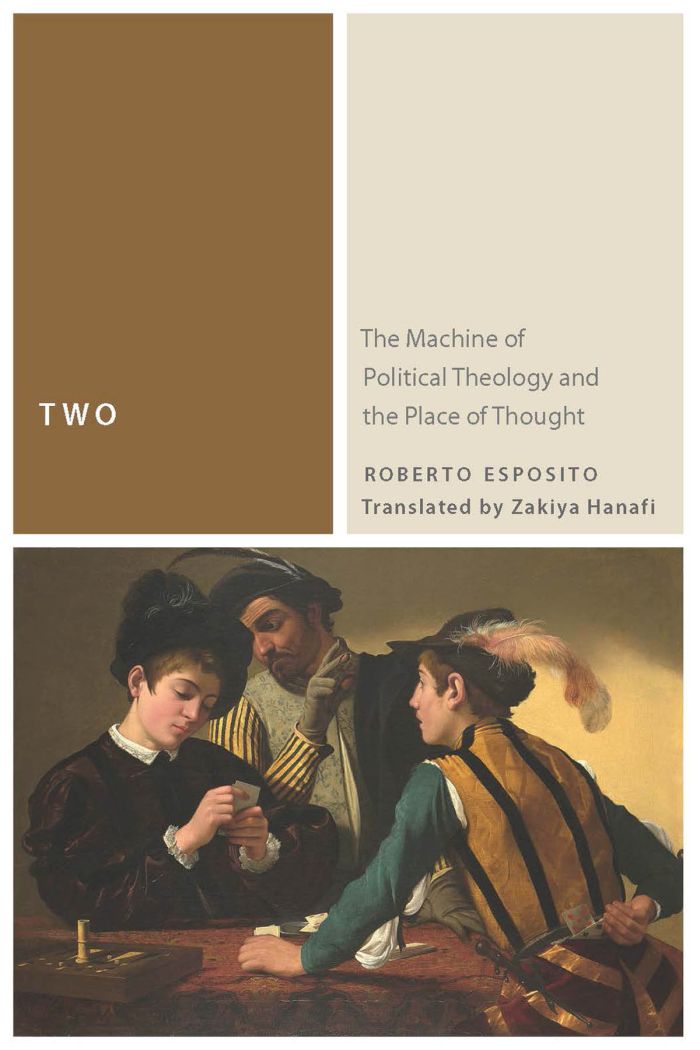Two
The Machine of Political Theology and the Place of Thought

This book can be opened with

The debate on “political theology” that ran throughout the twentieth century has reached its end, but the ultimate meaning of the notion continues to evade us. Despite all the attempts to resolve the issue, we still speak its language—we remain in its horizon.
The reason for this, says Roberto Esposito, lies in the fact that political theology is neither a concept nor an event; rather, it is the pivot around which the machine of Western civilization has revolved for more than 2,000 years. At its heart stands the juncture between universalism and exclusion, unity and separation: the tendency of the Two to make itself into One by subordinating one part to the domination of the other. All the philosophical and political categories that we use, starting with the Roman and Christian notion of “the person,” continue to reproduce this exclusionary dispositif.
To take our departure from political theology, then—the task of contemporary philosophy—we must radically revise our conceptual lexicon. Only when thought has been returned to its rightful “place”—connected to the human species as a whole rather than to individuals—will we be able to escape from the machine that has
imprisoned our lives for far too long.
“Two is a tour-de-force by Roberto Esposito: an attempt to grasp the phenomenon of political theology, from its origins in Roman jurisprudence and Christian theology, all the way up to the twentieth-century debate on this theme.”
“With his usual genealogical acumen, in Two, Esposito makes a very significant contribution to the dismantling of what he identifies as the hierarchical dispositive of Western civilization as such: political theology. Philosophy can and must develop a new conceptual lexicon able to overcome the forgetting of the Two within the One. What is here ultimately at stake is an ambitious redefinition of thought as impersonally applicable to the human species, rather than to individuals. This book is indispensable reading for anybody interested in biopolitics and the future of critique at large.”
This work, beautifully translated by Zakiya Hanafi, shows how professor Esposito’s thought is developing from his groundbreaking earlier work on community and immunity. This book will be a welcome and important contribution to students of the history of biopolitics, continental philosophers, historians of ideas, and political theorists.

